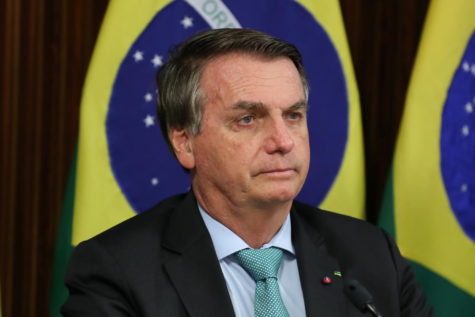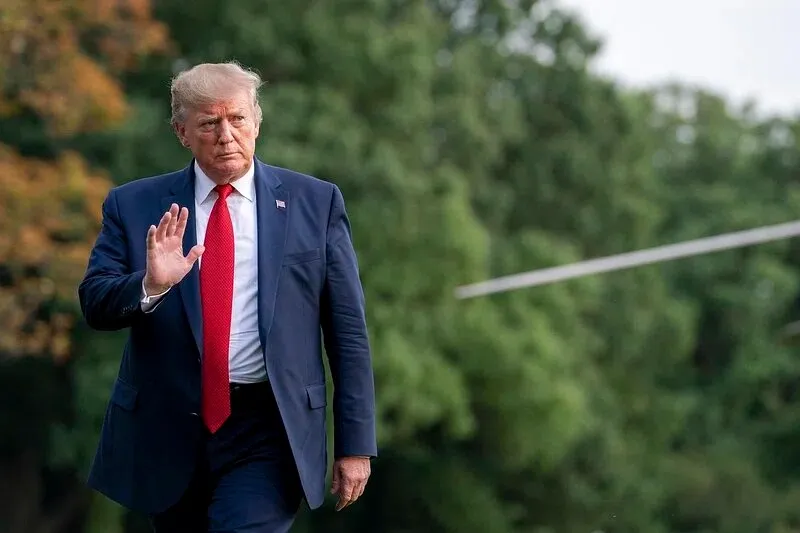Claims of Election Fraud Despite of Certified Brazilian Election
November 22, 2022
During the second-round election of the Brazilian Presidential race on October 30, 2022, Luiz Inácio Lula da Silva, most commonly known as simply Lula, was elected as Brazil’s new president as he defeated incumbent Jair Bolsonaro.

Lula, a member of the left-leaning Workers’ Party (PT), is one of the most popular people in Brazilian politics, having served as president for two terms between 2003 and 2010 before being convicted of corruption and jailed, although this decision was later invalidated after national investigation. Lula is famed for overseeing an economic upturn that resulted in helping over ten million people out of an impoverished state in the country. With the Workers’ Party having an origin in grassroots labor union initiatives, some of Lula’s goals for the presidency include expanding social housing, introducing debt forgiveness, taxing the wealthy, eliminating a cap on public spending, and most importantly, having a strong emphasis on counteracting climate change through Amazon Rainforest conservation.
On the other hand, Bolsonaro is a member of the right-leaning Liberal Party (PL), who also has experience in politics, being a former army captain, Congressperson, and President starting in 2018. Bolsonaro, both socially conservative and nationalistic, ran on a platform of opposing abortion, LGBTQ+ rights, and legal drugs, and hoping to restrict freedom of religion and speech while portraying himself as capitalistic and business-focused.
In the end, Lula ended up being the victor of the election, receiving 50.9% of the popular vote (60,345,999 votes), while Bolsonaro got 49.1% of the votes (58,206,354 votes). Key areas for Lula included Bahia and Maranhao, while Bolsenaro easily won Rondonia and Santa Catarina.
Bolsonaro has long been compared to the former U.S. President Donald Trump, which has proved to be the case with this election as well, with claims of election fraud connected to the former Liberal Party leader running rampant. In a report released by the Brazilian military on Wednesday, November 9, 2022, both election deniers and supporters of an

honest election received evidence to back their claims. This was a key point for the progression of the election, as the Liberal Party claimed that the findings would determine its official stance on accepting the election. While the report did state that no irregularities were found with the results, supporting fair election believers, it also said that, since Brazil’s election system was entirely digital this year, the military would be unable to completely root out all forms of specific election fraud scenarios.
The votes were counted extremely efficiently, with almost all 118 million votes being tallied within three hours. This process, the report said, had no issues with the processing of votes or the physical voting process, although it did admit that, since the machines have 17 million lines of code, officials were not able to fully inspect or test them, leaving a chance for manipulation in the software. While most security experts commenting on the report said that it was reliable from a technical perspective, they admitted that some hypothetical fraud situations could be possible.
With this report, an emphasis that the election was a fraud increased among conservatives, both citizens and political leaders alike. For instance, during a speech to the House, lawmaker Filipe Barros claimed election workers were thieves, stating that “Something needs to be done.” Similar to the 2020 election in the United States, any slight possibility that an election was a fraud can be bolstered and amplified through social media, especially if supported by divisive party leaders such as Trump and Bolsonaro. According to polling, Bolsonaro’s claims over the past three years targeting election integrity have contributed to the now three-fourths of Bolsonaro supporters claiming that they trust voting machines little or not at all.
Trying to address some of these concerns about election integrity prior to the 2022 election, election official groups brought the Brazilian military into a transparency committee meeting in 2021. At the event, it was agreed that some voting machine tests would be changed to ensure greater security. Despite this, some Bolsonaro supporters have been putting forth misinformation online, from videos of malfunctioning voting machines to false data, to even accusing election officials of rigging the election. This expanded past the citizenry as well, as election officials, led by Supreme Court Justice and Brazil elections chief Alexandre de Moraes, hired tech companies to block the accounts of several prominent conservative misinformation campaigners, which includes five Congressmembers. However, Alexandre de Moraes has also failed to be transparent with these efforts, sealing records, and wielding a large amount of power, gained by the elect
ion official vote in October, leading to fears of a coverup by the government, again by conservatives.
Although Bolsonaro has not explicitly claimed fraud yet in this election, he has not conceded either, even with his authorization that the government begins a transition to Lula’s presidency. As Lula steps up to take the mantle of President, claims of election fraud have led to a deeper look into the workings of the Brazilian election system, with security experts advocating for paper backups, although some argue that this just introduces another variable for manipulation.




















































